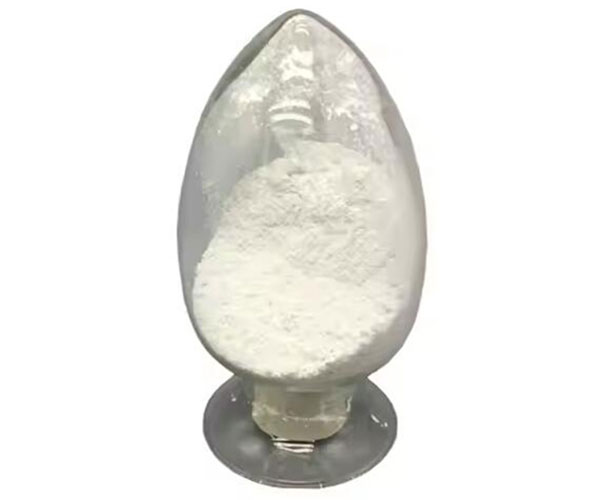Lithium Difluorophosphate (LiDFP)

Lithium Difluorophosphate (LiDFP)
Lithium difluorophosphate LiDFP is a white powdery solid. When exposed to air, it easily absorbs moisture in the air and becomes acidic. Lithium difluorophosphate has high electrochemical stability and can improve the conductivity of non-aqueous electrolyte solutions.
- Short name:LiDFP
- CAS NO.:616-38-6
- EINECS No.:643-080-8
- Molecular Formula:LiPO2F2
- Molecular Weight:107.9
- Appearance:white powder
Technical Specifications
| Parameter | Specification | Unit |
| Chemical Name | Lithium Difluorophosphate | – |
| Chemical Formula | LiPO₂F₂ | – |
| Purity (Min) | 99.50 | % |
| Impurities (Max) | ppm | |
| Water (H₂O) | 100 | ppm |
| Hydrogen Fluoride (HF) | 200 | ppm |
| Chloride (Cl⁻) | 10 | ppm |
| Sodium (Na) | 5 | ppm |
| Potassium (K) | 5 | ppm |
| Calcium (Ca) | 5 | ppm |
| Iron (Fe) | 5 | ppm |
| Lead (Pb) | 5 | ppm |
Performance of Lithium Difluorophosphate in Battery Electrolyte
-
Prolong the service life of the battery
By forming a stable solid electrolyte interface film (SEI film) at the electrode interface, the occurrence of side reactions is reduced, thereby extending the service life of the battery.
-
Reducing self-discharge
The use of lithium difluorophosphate can effectively reduce the self-discharge rate of the battery and reduce the power loss of the battery during storage.
-
Improve the high and low temperature cycle performance of the battery
Lithium difluorophosphate can maintain stable performance in both high and low temperature environments, improving the cycle performance of the battery under high and low temperature conditions.
Applications of Lithium Difluorophosphate LiDFP in the Battery Field
Lithium difluorophosphate is a high-performance electrolyte material, mainly used in lithium batteries. Lithium batteries have attracted widespread attention due to their high energy density, long life and wide application prospects. Lithium difluorophosphate plays the role of ion transmission in lithium batteries, which can improve the working efficiency and safety of batteries. It has excellent electrochemical stability and thermal stability in battery positive electrode materials, which can effectively improve the battery’s cycle performance and capacity retention rate. In addition, lithium difluorophosphate LiDFP can also be used as a protective additive for lithium batteries to enhance the battery’s overcharge, over-discharge and safety performance.
Lithium difluorophosphate is also commonly used in the preparation of solid electrolyte materials. With the development of solid-state battery technology, solid electrolyte materials have become a research hotspot. Lithium difluorophosphate is widely used in the preparation of solid electrolytes due to its good ionic conductivity and mechanical properties. It can increase the ion conduction rate of solid electrolytes and improve the interfacial properties of batteries, thereby improving the comprehensive performance of solid-state batteries.
In addition, lithium difluorophosphate also plays a key role in the synthesis of battery materials. In the production process of lithium batteries, the synthesis of positive electrode materials is crucial. Lithium difluorophosphate can be used as one of the raw materials for synthesizing positive electrode materials, combined with other materials to prepare high-performance positive electrode materials, thereby improving the overall performance of lithium batteries.
Development Prospects of Lithium Difluorophosphate
With the popularization of electric vehicles and the rapid development of new energy industries, the demand for lithium difluorophosphate in the battery industry continues to increase. However, there are certain environmental risks and safety hazards in the production process of lithium difluorophosphate, and advanced production processes and technologies need to be adopted to ensure the safety and environmental protection of the production process. At the same time, with the enhancement of global environmental awareness and the adjustment of new energy policies, the price and market demand of lithium difluorophosphate may also be affected to a certain extent.
In general, as an important inorganic compound, lithium difluorophosphate still has broad application prospects and market potential. In the future, with the continuous development of the new energy industry and technological progress, the market demand for lithium difluorophosphate will continue to grow. At the same time, with the continuous improvement of production technology and the strengthening of environmental protection policies, the production of lithium difluorophosphate will also be more environmentally friendly and safe.
Contact Us
Have any need about new-energy materials? Feel free to contact us at any time.
- Phone: +86-371-55091002
- Whatsapp: +8618624832876
- Wechat: +8618624832876
- Email: Sales@mgm-batterymaterials.com
- Address: NO.283 XISANHUAN ROAD,HIGH-TECH INDUSTRIALDEVELOPMENT ZONE,ZHENGZHOU,HENAN,CHINA.
